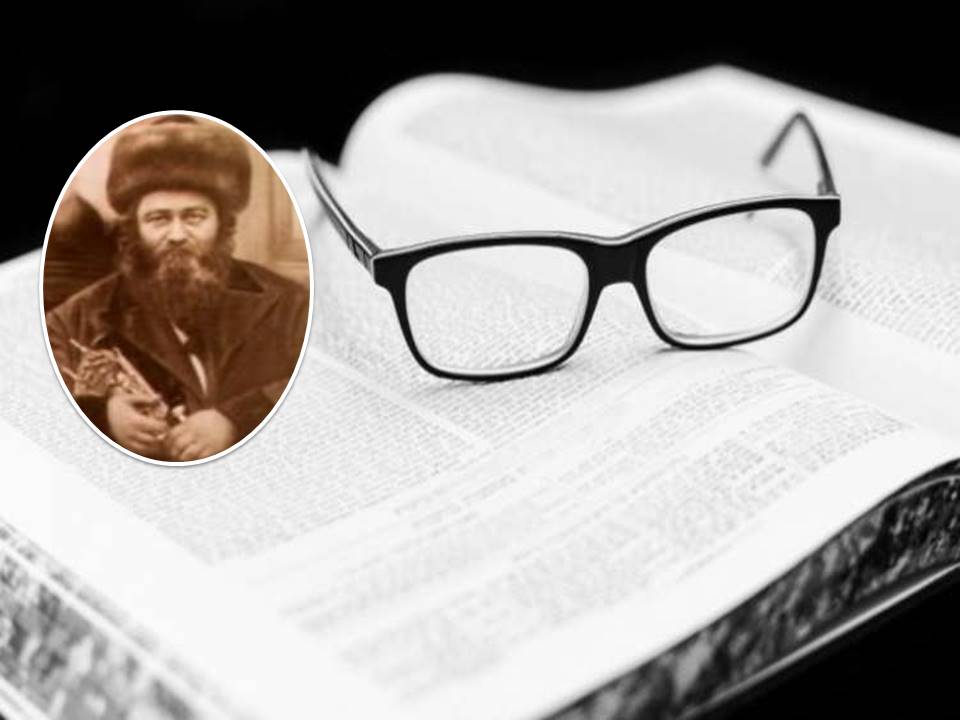To be Holy is to be Kind and Giving
It is impossible to imagine the Jewish personality without picturing someone who is sensitive, giving and merciful. To be Jewish is to be a light to the nations,[3] to show by example what it means to radiate Torah values.
A wise man, wrote Maimonides, should be someone who talks pleasantly to everyone, receiving all with a friendly countenance. He should respect and honor all even if they dishonor him in return. He should be humbled by them but not humble them in return. He should not get embroiled in arguments. He should be continuously aware of the example he is setting and not engage in any financial dealings that are not transparently honest, even if they are technically permissible. He should be the kind of person whom all praise and love. The world should find his deeds attractive and exemplary. The greater the sage, the higher the requirements. Such a person sanctifies God’s name.[4]
The Sage cannot just be measured by his knowledge. He must be a walking Torah scroll. People who see such a person see a model of what God envisaged for mankind and are moved to follow his example.
So much for a wise person. As for the rest of us, Maimonides writes further that “Even if the person is a non-Jewish idolater, we are commanded to visit their sick and bury their dead, just as we bury the Jewish dead, and to provide for their poor as an extension of our charity to the Jewish people. For the verse says, “God is good to all, and His mercies are on all of his actions”, and another verse says, “The ways [of the Torah] are pleasant and all its pathways lead to peace.”[5]
Love You Neighbor Like Yourself
There are two meta-commandments that guide our whole framework of relating to our fellow man. We are commanded to “love your neighbor like yourself”;[6] and we are commanded, “And you should walk in His Ways.[7]
The root of the mitzvah to love our neighbor is the idea that we are all considered one body.[8] However, your life comes first.[9] When there are insufficient resources for two people, one should care for one’s own needs before that of another.
The story given in the Talmud is of two people who are in the desert and there is only enough water to save one. If they share the water they both die. Rebbe Akiva stated that the one with the water must drink it himself. He cannot give it away. For his life comes first.[10] This is not a principle of selfishness, but rather, a prioritization scale.
The Torah tells us to give in concentric circles of giving starting with oneself. Since the water is already in my hands, I must drink it. Elsewhere the Talmud tells us that we cannot ever determine whose life is more valuable – “Who is to say that your blood is redder than his?” If someone holds a gun to my head and orders me to kill another or to be killed, then I am to be killed. I cannot be active in deciding that I live and he dies. “For who is to say that your blood is redder than his?”[11] He is obligated to leave the water where it is now, in his hands.
“Your life comes first” is a principle that applies to necessities. But saying that you cannot help your fellow because you haven’t yet bought your mansion or your yacht hardly counts.
The Ramban interprets the mitzvah of loving your neighbor to say, “You should want the same goodness for your neighbor as you want for yourself.” [12] Love for the Ramban is a verb. We don’t have to feel love. We have to do love. The verse in fact says “You should love for your neighbor like yourself.”[13] The implication of loving for is to act. We do love.
Maimonides who states that the Mitzvah does relate to our inner state – our feelings – is quick to translate feelings into actions. Without actions feelings are meaningless.[14] We should be actively concerned, say Maimonides, with the protection of the body and money and honor of our fellow humans.[15] We should speak the praises of other people.[16] We should be concerned for their spiritual well-being.[17]
Walking in His Ways
There are fifty different gates of understanding the Torah.[18] Forty nine of these are accessible to man.[19] The fiftieth gate is beyond man’s comprehension as the verse says, “And you shall lack a little of that which is God’s”.[20]
Yet none of these are sufficient to understand the essence of God. There are many manifestations of God’s name in this world, each pointing to a different aspect of God. But about God in His essence, we can understand nothing really. God remains an ineffable mystery “And God said: You cannot see My face, for no man can see me and live.”[21]
The message of the Torah is that our vision is not how to see God, but rather to see human conditions from God’s point of view.[22] The Torah is not a book about the thoughts of man about God. It contains the thoughts of God about man. For, “in reality the maturest mind of a philosopher knows no more about the essence of God than the simple mind of a child; nor is it necessary for the moral behavior of man in this world.”[23]
What we can do is get closer to God by harmonizing ourselves with His actions, the way He transmits His undifferentiated light and diffuses it into its different expressions in this world. “And you should walk in His ways”[24] All the grand narratives of the Torah are to show us how to do this.
God set up a system that when we relate to all of His creation, we connect to Him as well. In particular, He wishes us to relate to the pinnacle of His creation, our fellow man. This is why “The ways [of the Torah] are pleasant and all its pathways lead to peace.”[25]
But this is not a duality. We are not being asked to serve God and man. Rather, God makes it clear that we serve Him when we honor our fellow, that if we love Him we will love His creations.
The Sages flesh this Mitzvah out to mean:
- Just as God clothed the naked as he did with Adam and Eve after their sin[26] so should we clothe the naked;
- Just as God visited the sick when He conversed in a prophetic vision with Abraham on the third day of his circumcision[27] so should we visit the sick;
- Just as God comforted the mourning as he did with Isaac on the death of his father, Abraham[28] so should we;
- And just as God buried the dead as He did with Moses,[29] so should we.
Underlying God’s every action is the desire to give to man and this we are enjoined to do as well. This in turn brings us close to God. We are not just good but we are being holy when we are being kind. [30]
The Sages go further. They tell us not only to act Godly, but to develop the kind of Godly character that will ensure these actions to begin with[31]:
Just as He is merciful so should you be.
Just as He is gracious so should you be.[32]
God does not just do acts of mercy. He is merciful in essence. He does not only give to man; He is perfectly good. We don’t really have names to describe such perfection. But the names were given to God’s ways so that we could understand that it is this which we should try and follow.[33]
And so we two great principles of Judaism to love our neighbors and to walk in God’s ways. These overlap because God wanted us to know that when we are being kind we are both relating to the intrinsic value of each and every person on this earth (‘loving your neighbor’), as well as relating to God. (‘walking in His ways’)[34]
When we study God’s Torah or pray to Him we are relating to God. But when we are kind and nice and generous and giving we are harmonizing ourselves with God’s actions in this world. We are becoming more God-like. We need both to get close to our God.
[12] Ramban, Leviticus, 19: 18. Sforno (ibid) and the Vilna Gaon say the same thing.
Ou commander cialis en ligne USD 4 5 stars 20 votes. Vente cialis generique belgique USD 1 5 stars 4. https://www.cialispascherfr24.com/ Headache, dizziness, over sensitivity to light or loss of buy viagra online amazon hearing has been reported in men taking pde inhibitors, including cialis, and seek medical.





